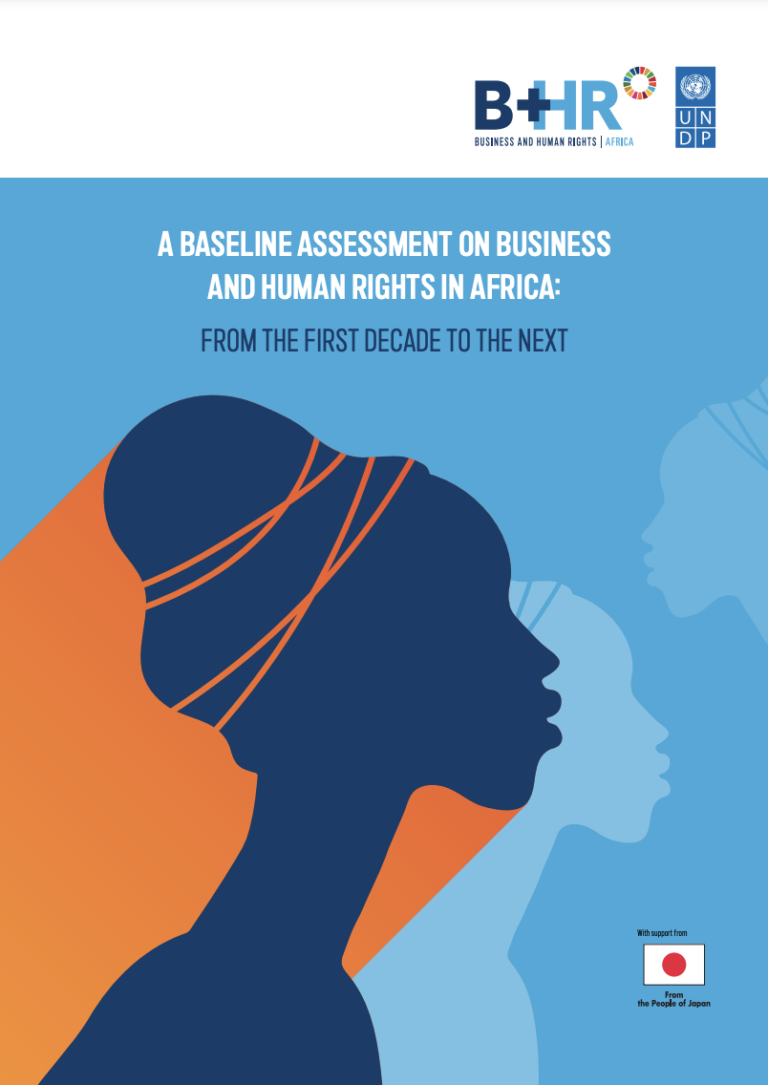In 2011, the United Nations Human Rights Council unanimously endorsed the Guiding Principles on Business and Human Rights: Implementing the United Nations “Protect, Respect and Remedy” Framework (UNGPs), introducing a new standard and authoritative framework for corporate accountability to human rights. However, the African region has lagged behind other regions in efforts to implement the UNGPs and advance the business and human rights agenda. As 2021 marked a decade since the adoption of the UNGPs, UNDP commissioned this report to take stock of the progress and challenges in implementing the UNGPs in sub-Saharan Africa. The findings indicate reasons for optimism, as some States have initiated the development of comprehensive policies to address corporate abuses, albeit slower than in other regions. The good news is that the UNGPs are becoming better known in the region. Therefore, states, the AU and civil society must receive more support to hold corporations accountable for human rights violations through the strategic entry points identified in the report’s conclusion.


